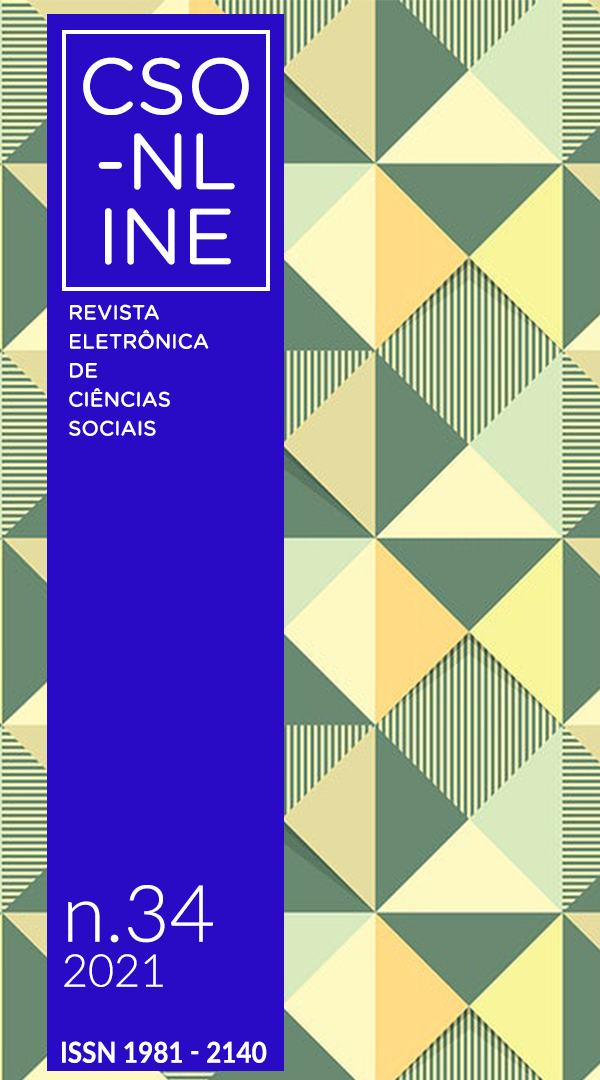Quotas in the Medicine course at the State University of Rio de Janeiro.
DOI:
https://doi.org/10.34019/1981-2140.2021.32566Keywords:
Quotas, Affirmative actions, CredentialismAbstract
This article analyzes the quota policy in Brazilian universities, using the case of the State University of Rio de Janeiro and especially the university medical course. The choice of the institution was due to the fact that it is the university that was given the responsibility to inaugurate the policy in Brazil, being under criticism and controversy from the first moments and currently undergoing an attempt to reverse this policy by state legislature. The course was chosen for being of high social prestige, historically populated by the elites, and with a very high degree of entry difficulty. The interest in finding out how this policy is viewed in a course with these characteristics was the driving force of this research. It was intended to find out who are the beneficiary students of this program, paying attention to their socioeconomic and cultural characteristics. It also sought to understand how these students' relationships are given, among themselves, among other students, teachers and university life. The research work methodology was based on document analysis and field research. The minutes of the UERJ Superior Council (Consun), national and state laws and UERJ's statistical database, DataUerj, were analyzed. Interviews were also conducted with quota students and non-quota students of the course, regarding the perceptions of these actors about the policy analyzed. The theoretical framework discusses concepts about credentialism, meritocracy and subordinate spaces.
Downloads
References
CARVALHO, Márcia de; WALTENBERG, Fábio D. Cotas aumentam a diversidade dos estudantes sem comprometer o desempenho? Texto para discussão 73. Niterói: CEDE/UFF, 2013.
COLLINS, Randall. La sociedad credencialista: sociología histórica de la educación y de la estratificación. Trad. Ricardo Lezcano. Madrid: Akal, 1989.
HASENBALG, Carlos. Discriminação e desigualdades raciais no Brasil. 2 ed. Belo Horizonte: UFMG; Rio de Janeiro: IUPERJ, 2005.
MOEHLECKE, Sabrina. Ação afirmativa: História e debates no Brasil. Cadernos de pesquisa, São Paulo, n. 117, nov. 2002.
MONT’ALVÃO, Arnaldo. Estratificação Educacional no Brasil do Século XXI. Dados. Revista de Ciências Sociais, Rio de Janeiro, vol. 54, n. 2, 2011.
MORAES SILVA, Graziella. Ações Afirmativas no Brasil e na África do Sul. Tempo Social, São Paulo, v. 18, p. 131-165, 2006.
NASCIMENTO, Tarcísio. As ações afirmativas na câmara federal: uma análise das orientações políticas que as norteiam. 2012. 127 f. Dissertação (Mestrado em Ciências Sociais) – Universidade Federal de Juiz de Fora, Juiz de Fora, 2012.
NIESC. DataUerj. Anuário estatístico. Base de dados 2007. 2008.
NIESC. DataUerj. Anuário estatístico. Base de dados 2008. 2009.
NIESC. DataUerj. Anuário estatístico. Base de dados 2009. 2010.
NIESC. DataUerj. Anuário estatístico. Base de dados 2010. 2011.
NIESC. DataUerj. Anuário estatístico. Base de dados 2011. 2012.
NIESC. DataUerj. Anuário estatístico. Base de dados 2012. 2013.
SCHARTZAMAN, Simon. A Revolução Silenciosa do Ensino Superior: Seminário sobre “o sistema de ensino superior Brasileiro em Transformação”. In: DURHAM, Eunice Ribeiro; SAMPAIO, Helena. O Ensino Superior em Transformação. São Paulo: Núcleo de Pesquisas sobre Ensino Superior (NUPES/USP), 2000.
SOUZA, Jessé. A Modernização Seletiva: Uma reinterpretação do dilema brasileiro. Brasília: UNB, 2000.
UERJ. Avaliação qualitativa dos dados sobre desempenho acadêmico. Relatório, 2011.
Downloads
Published
How to Cite
Issue
Section
License
Copyright (c) 2021 CSOnline - REVISTA ELETRÔNICA DE CIÊNCIAS SOCIAIS

This work is licensed under a Creative Commons Attribution 4.0 International License.
Todos os artigos científicos publicados na CSOnline – Revista Eletrônica de Ciências Sociais estão licenciados sob uma Licença Creative Commons







